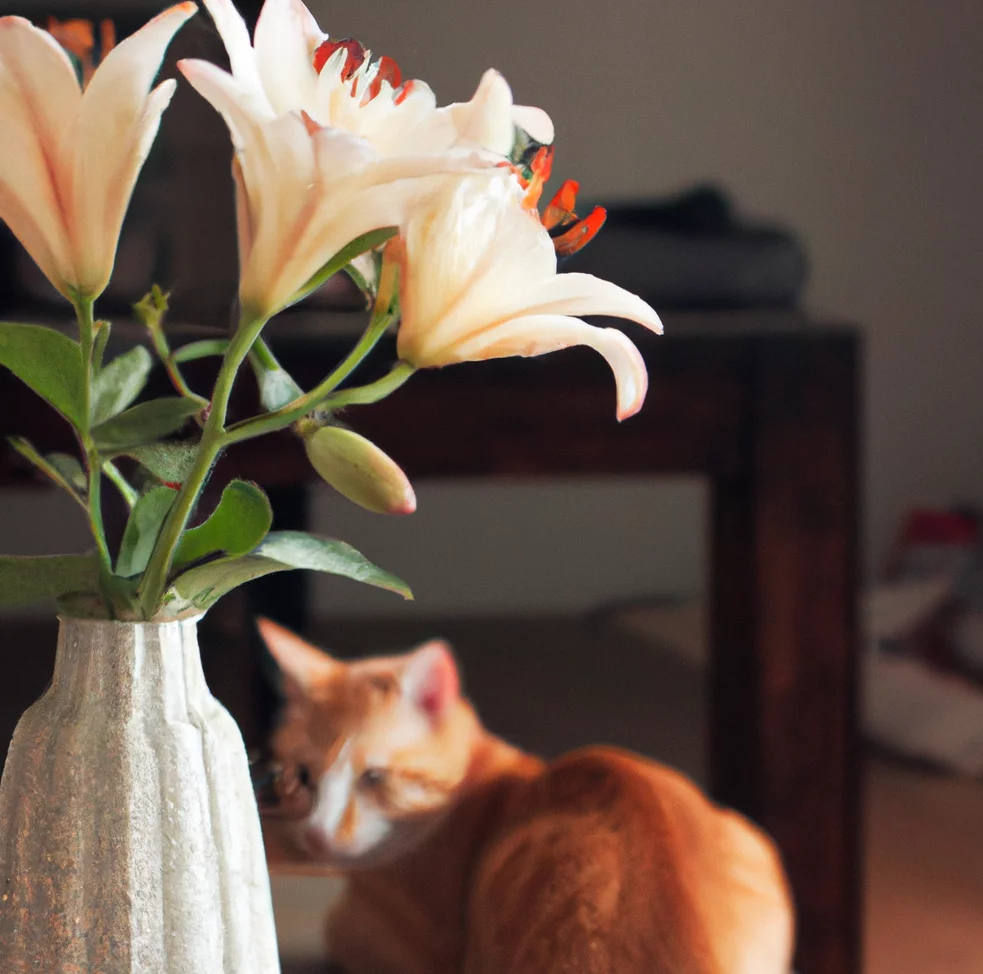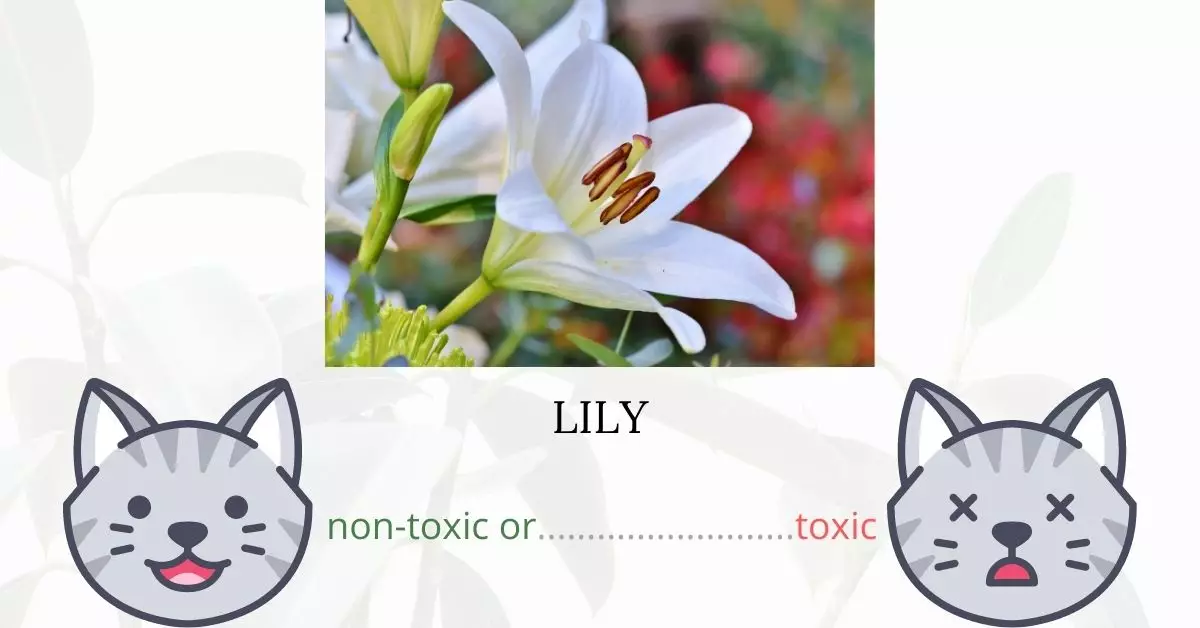Lilies are not only admired for their beautiful blossoms but, importantly, they are highly toxic to cats. A mere consumption or even a lick of a lily plant can lead to severe kidney damage in our feline friends, which, if left untreated, may result in kidney failure and even death.
This article has been diligently crafted in collaboration with a team of experienced DVMs (doctors of veterinary medicine). With their expert insights, as well as extensive research from high-authority sources such as ASPCA and PetMD, we aim to provide accurate and up-to-date information regarding the potential risks plants like lilies pose to cats.
Even in modest amounts, all elements of a lily plant, including the leaves, blooms, and pollen, are poisonous. Lily poisoning is commonly caused when a cat brushes against a lily, causing pollen to fall onto their fur, which they then lick off and consume.
The particular toxin found in lilies that causes poisoning in felines is unclear. The Asiatic lily, Stargazer or oriental flower, Tiger lily, and Easter lily are among the many diverse species of lilies that can be deadly. Peace lilies are less hazardous, yet they are still poisonous.
Because of their curious nature and inclination to chew on plants as part of their exploration of their surroundings, kittens are especially vulnerable to lily poisoning. If you think your cat has had lily poisoning or has been caught eating a part of a lily plant, you should take him to the veterinary clinic right once.
Clinical Signs of Lily Poisoning in Cats

Lilies contain certain toxins that can severely affect a cat’s internal systems. When a cat comes into contact with, smells, or consumes any part of a lily plant, it may experience a range of clinical signs which usually manifest within six to twelve hours of exposure. Here’s a breakdown of these symptoms and the reasons behind their occurrence:
- Vomiting: One of the immediate reactions, this is the body’s way of trying to expel the ingested toxins.
- Loss of Appetite: The toxins can cause gastrointestinal discomfort, making the cat averse to food.
- Excessive Salivation: A common reaction when the oral cavity comes into contact with irritants or harmful substances.
- Lethargy: The toxins can interfere with the cat’s metabolic processes, leading to decreased energy levels.
- Urinary Incontinence: Lilies can disrupt the normal functioning of the kidneys, which can lead to uncontrolled urination.
- Infected Gums: The toxins may cause inflammation in the mouth, resulting in gum infections.
- Disorientation: Neurological effects of the toxins can affect the cat’s sense of direction and cognitive function.
- Inability to Walk: As the neurotoxins progress, motor coordination can be affected, leading to difficulty in walking.
- Twitching: A sign of neurological disturbance, caused by the interference of the toxin with nerve functions.
- Seizures: Severe cases might witness neurological overstimulation, leading to seizures.
- Kidney Failure: The toxins in lilies are particularly damaging to a cat’s kidneys, which, if untreated, can lead to total kidney shutdown.
- Death: In the absence of timely and appropriate treatment, the cumulative effects of these symptoms can unfortunately be fatal.
It is crucial for cat owners to be vigilant and seek immediate veterinary attention if they suspect their cat has come into contact with lilies.
First Aid and Treatment of Lily Poisoning in Cats

If your cat has lily poisoning, your veterinarian will first stabilize them if they are experiencing any life-threatening symptoms. Your cat will get drugs and fluids through an IV to help minimize nausea and boost renal function. Your cat may become quite ill as a result of the lily poisoning and will need to be hospitalized for at least an overnight stay and observation.
Once your cat condition is no longer critical, the vet may give treatment which most likely will include performing gastric lavage, vomit induction, administering activated charcoal, and providing intravenous fluid therapy. Additional medications may be given by the vet as he may deem necessary in your cat’s condition.
Recovery from Lily Poisoning in Cats

When lily poisoning is identified early, your cat has an excellent chance of recovering. Poisoning can cause long-term or short-term organ damage in some cats which can be managed with prescribed medications and follow-up visits at the veterinary clinic. Lilies are, unfortunately, extremely toxic, and some severe cases may result in death.
Prevention of Lily Poisoning in Cats
Avoid planting lilies in your gardens and bringing flower arrangements in your home with lilies in them. If there are lilies growing in your neighbor’s yard or garden, restrict your cats from going outside. Keep your cats confined in a cat house or playpens if you are going outside without them.
If you love plants but have cats at home, check out these lists:





